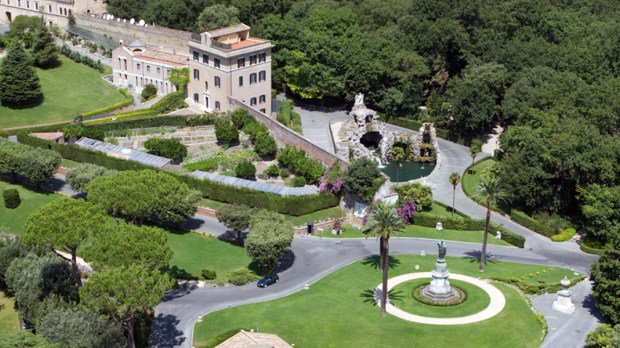The head of the Vatican’s extensive gardens has announced an initiative, already underway, to totally eliminate the use of chemical pesticides and fertilizers.
Rafael Tornini, head of the Garden and Environment Service of the Vatican, told L’Osservatore Romano that the gardens, which cover 37 acres, will embrace “the green” vocation enunciated by Pope Francis’ encyclical, Laudato Si’.
Since the project was initiated in 2017, the Vatican Gardens has reduced its use of chemical substances by 96%, according to the report in L’Osservatore Romano.
In 2015, the Vatican had already stopped using the chemical agent glyphosate as a herbicide. Instead, they now use pelargonic acid, a natural substance found in Pelargonium plants, and spray it on the gravel paths of the Vatican only twice a year in order to reduce its environmental impact.
Under the initiative, the Vatican Gardens has adopted the use of organic products to eliminate destructive insects, and has changed its strategy so as to help the plants help themselves.
“The principle that inspires the project,” Tornini told L’Osservatore Romano, “is to reinforce the defenses of the flora rather than acting primarily on its enemies. When the garden is healthy it is able to keep the parasites at bay, through better fertilization, optimal pruning and careful reforestation.”
In addition, Tornini said, dandelions and aromatic plants have been planted to attract predatory insects, which are then consumed by the bats that reside in the gardens’ new bat houses.
Another aspect of the initiative is an updated irrigation system. The new system — a much needed update of the existing labyrinth of failing pipes dating back to 1932-33 — is expected to cut water use by 60%.

